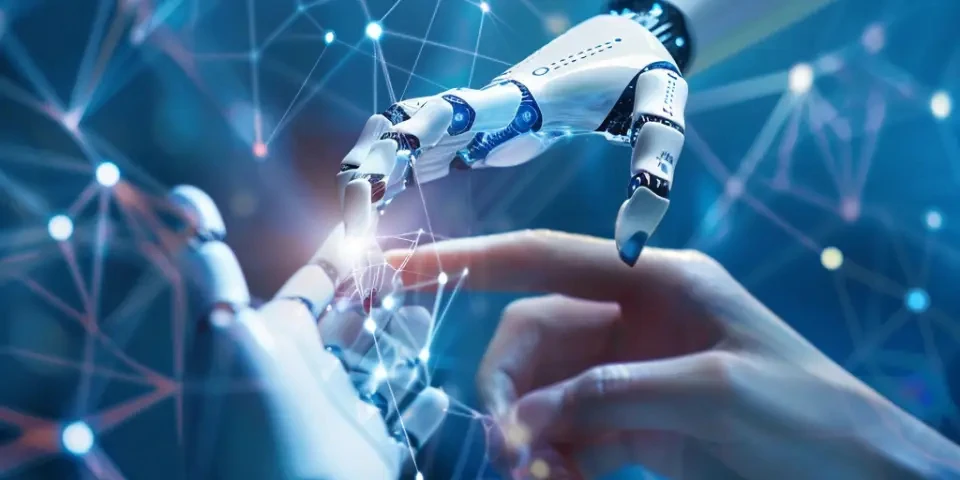Unleashing the Power of AI How Deep Fakes are Revolutionizing the Entertainment Industry
In recent years, the entertainment industry has undergone a remarkable transformation with the emergence of deep fakes, powered by advanced artificial intelligence (AI) algorithms. Deep fakes refer to highly realistic manipulated videos or images that can depict individuals saying or doing things they never did. This groundbreaking technology has the potential to revolutionize the entertainment industry in various ways. In this article, we will explore eight key aspects that highlight the power of deep fakes and their impact on the entertainment industry.
1. Enhanced Visual Effects
Deep fakes enable filmmakers and visual effects artists to create incredibly realistic scenes that were once thought impossible. By seamlessly integrating CGI elements into real-world footage, filmmakers can now bring their wildest imaginations to life. This technology not only reduces the need for extensive practical effects but also opens up new creative possibilities to captivate audiences.

Furthermore, deep fakes can recreate iconic characters or resurrect deceased actors, providing the opportunity for beloved characters to continue their stories even after an actor's passing. However, ethical concerns surround the use of deceased actors' likeness without proper consent.
2. Powerful Storytelling Tools
With deep fakes, storytellers can push the boundaries of storytelling by placing characters in scenarios that were previously difficult or impossible to film. This technology allows for seamless blending of actors into historical events or fantastical locations, enhancing immersion and creating engaging narratives. Directors can build complex and emotionally resonant stories by leveraging the potential of deep fakes to manipulate the storyline.
FAQ:
Q: Can deep fakes be used to alter the perception of real events?
A: Yes, deep fakes have the potential to manipulate the perception of real events, raising concerns about misinformation and fake news.
3. Cost-Effective Production
Traditionally, creating realistic fictional characters or hiring celebrity look-alikes for movies and advertisements incurred significant expenses. Deep fakes provide a cost-effective alternative, as AI algorithms can generate convincing digital clones of individuals, eliminating the need for high-budget casting or elaborate makeup. This technology democratizes access to visual effects, enabling smaller productions to compete with larger studios.
4. Personalized Marketing and Advertising
Deep fakes have immense potential in marketing and advertising by allowing brands to create hyper-realistic advertisements featuring celebrities or influencers. These customized promotions can have a more significant impact on target audiences, as they feel more personal and relatable. However, the use of deep fakes for advertising purposes must be transparent to prevent deception.
Tool Mention:
RefaceAI is one such tool that allows users to create deep fake videos by swapping faces. It has gained popularity among social media users for its user-friendly interface and realistic results.
5. Preserving Cultural Heritage
Deep fakes can play a crucial role in preserving cultural heritage by reconstructing historical figures and events. By utilizing AI algorithms and available reference material, we can recreate the appearance and mannerisms of influential individuals from the past. This technology promotes a deeper understanding of history by visually representing the personalities that shaped our world.
6. Training Ground for Actors
For aspiring actors and performers, deep fakes offer an excellent training ground. They can use this technology to practice imitating the acting styles of renowned actors or to create audition tapes for roles that require impersonations. This not only enhances their skills but also expands their range of performances.
FAQ:
Q: Are there any disadvantages to using deep fakes in the entertainment industry?
A: While deep fakes offer numerous benefits, there are concerns about the potential for misuse, such as unauthorized use of an individual's likeness or the spread of manipulated information.
7. Overcoming Physical Limitations
Deep fakes can break physical barriers and allow actors to portray characters that may be physically impossible for them. It enables performers to play characters of different ages, genders, or species, offering new opportunities for representation and inclusivity.
8. Ethical Considerations and Safeguarding
Deploying deep fakes in the entertainment industry raises a range of ethical concerns. For instance, the unauthorized use of someone's likeness or manipulating public figures' statements can have severe consequences. Therefore, establishing robust ethical standards, consent protocols, and verification systems are necessary to protect individuals and maintain trust in the industry.
Conclusion
As AI technology advances, deep fakes continue to revolutionize the entertainment industry. From enhancing visual effects and storytelling capabilities to providing cost-effective solutions and preserving cultural heritage, the potential applications of deep fakes are vast. However, careful consideration of ethical implications and responsible usage is essential to ensure this powerful tool is harnessed for creative and positive impact.
References:
1. Bondarouk, T., & Khapova, S. (2020). AI and the workplace of the manager: Feel free to be lazy—because AI can perform better. Journal of Management Development, 39(10), 1199-1203.
2. Mazars. (2021). Artificial Intelligence in the movie industry. Retrieved October 25, 2021, from https://www.mazars.cz/Home/Media/Artificial-Intelligence-in-the-Movie-Industry
